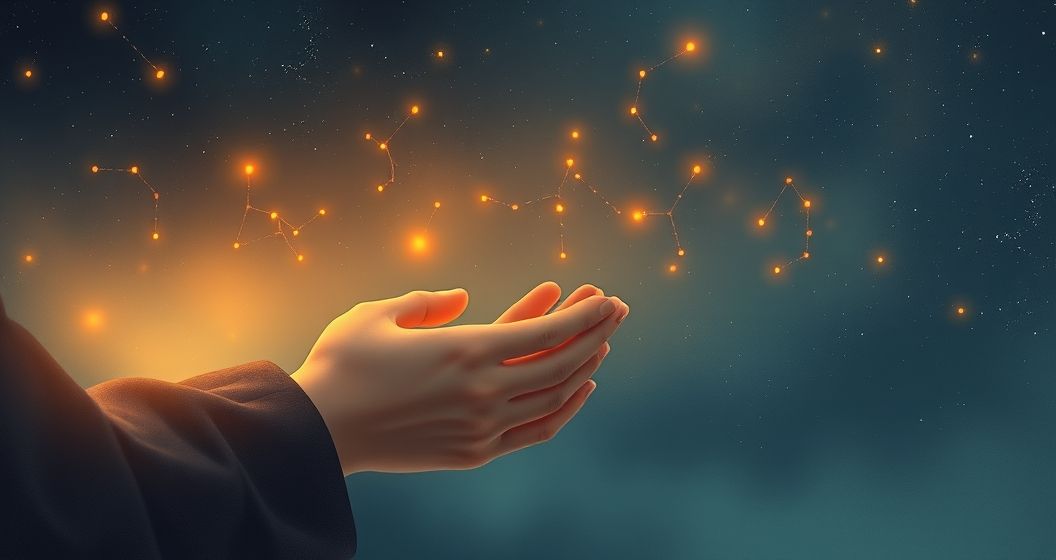Core Symbols: The Language of the Subconscious
Cradling a deceased father in dreams is a deeply personal act of preservation, often symbolizing the need to hold onto what feels irreplaceable. In sleep, the cradling gesture transcends physicality—it becomes a metaphor for protecting memories, seeking comfort, or reclaiming a sense of safety. Imagine a dream where your father’s form is warm beneath your hands, his presence tangible despite being gone; this isn’t mere fantasy, but your psyche’s way of acknowledging that his influence remains alive in your emotional landscape.
Embers, those glowing remnants of fire, carry layered meaning. They suggest warmth that refuses to fade, like the lingering warmth of a hug or the echo of a voice. If the embers in your dream feel alive, they may signal that grief hasn’t fully cooled—your heart still holds space for the love you shared. Constellations, meanwhile, transform the father’s memory into something vast and guiding: just as ancient sky-watchers used stars to navigate, your subconscious might be mapping his legacy as a compass. The constellation isn’t static; it shifts, reflecting how his values or lessons adapt to your life’s journey.
The hum in these dreams is a sonic bridge. It could be the cadence of his laugh, the lull of his voice, or even the hum of a familiar routine (like his morning coffee pot). Sound in dreams often bypasses the rational mind, delivering raw emotion. This humming isn’t just auditory—it’s the rhythm of connection, reminding you that absence doesn’t erase the bonds you shared.
Want a More Personalized Interpretation?
Get your own AI-powered dream analysis tailored specifically to your dream
🔮Try Dream Analysis FreePsychology Lens: Grief, Archetypes, and the Brain at Rest
From a psychological perspective, dreams of deceased fathers tap into the Jungian concept of the 'shadow'—the parts of ourselves we’ve buried, including unresolved feelings about loss. When your father appears in a dream, he may embody both the 'wise father' archetype (authority, protection) and the 'child archetype' (vulnerability, need for care). This duality mirrors the complexity of grief: you might feel both comforted by his presence and challenged by the absence he represents.
Freudian theory offers another angle, suggesting repressed emotions surface in dreams to resolve unprocessed trauma. If your father’s death felt sudden or unacknowledged, the dream could be your mind’s way of revisiting and healing that wound. Modern neuroscience adds clarity: during REM sleep, the brain processes emotional memories, turning grief into symbolic imagery rather than overwhelming you with raw pain. These dreams aren’t 'messages' but processing tools, helping your mind integrate loss into your daily identity.
Culturally, many traditions view ancestors as celestial guides—constellations in the night sky. In this light, your father’s 'constellation' might be less about literal stars and more about his enduring role in your life’s story. Whether you’re religious, spiritual, or secular, this framework honors the idea that love persists beyond physical form.
Life Triggers: When the Subconscious Calls
Life transitions often spark these dreams. A new job, moving house, or even a relationship shift can trigger the subconscious to revisit the stability your father once provided. If you’re feeling lost, his constellation might appear as a silent reminder: 'I was here for you then, and I’m still here now, guiding from afar.'
Grief milestones amplify this. Anniversaries, birthdays, or even mundane moments—a song on the radio, a smell of his cooking—can jolt your mind into processing unresolved emotions. The 'humming' might emerge when you’re missing his voice, or when you need reassurance that your choices align with his values.
Unspoken regrets also play a role. If you never said goodbye or felt unheard, the dream could be your father’s way of 'answering'—cradling you, embers glowing, as if to say, 'I’m here, and I forgive you.' These dreams aren’t about the past; they’re about bridging the gap between then and now, helping you reconcile with the love that still exists.
What To Do Next: Turning Symbolism Into Action
Start with short-term reflection: Journal the dream’s details. How did the cradling feel? Was the embers warm or cold? Note the constellation’s shape—did it resemble a familiar object, like his favorite chair? This reflection helps you decode the dream’s unique message for you. Ask: 'What part of me needs this comfort right now?'
For medium-term healing, create a small ritual. Light a candle (representing embers), play a song he loved (the humming), or visit a place that felt sacred with him. These acts honor his memory while grounding you in the present. Notice if the dream’s emotions shift—maybe the cradling becomes less tense, more peaceful, as you actively integrate his presence.
Long-term, ask: 'How has my father’s legacy shaped me?' His values, humor, or resilience might now guide your decisions. If you feel adrift, revisit his constellation—imagine him as a star in your sky, steady and bright. This isn’t denial; it’s a way of carrying his love forward, making him part of your daily story rather than a memory locked in the past.
FAQ: Navigating the Emotions Behind the Dream
Q: Why do I keep dreaming about my deceased father?
A: Recurring dreams often signal unresolved emotions or life changes. Your mind uses these dreams to process grief, seek guidance, or reconnect with lost parts of yourself. It’s your subconscious’s way of saying, 'I’m still here, and we need to talk.'
Q: What does it mean if the dream feels both comforting and sad?
A: This duality is normal. Sadness acknowledges the loss, while comfort validates the love that remains. Your mind is integrating both pain and warmth—a sign of healthy grief, not stagnation.
Q: Is there a difference between seeing a dead father alive vs. in embers/constellations?
A: Seeing him 'alive' might reflect longing for the past. Embers/constellations, however, symbolize his enduring presence—not a return, but a continuation of his impact on your life. They’re about legacy, not resurrection.
